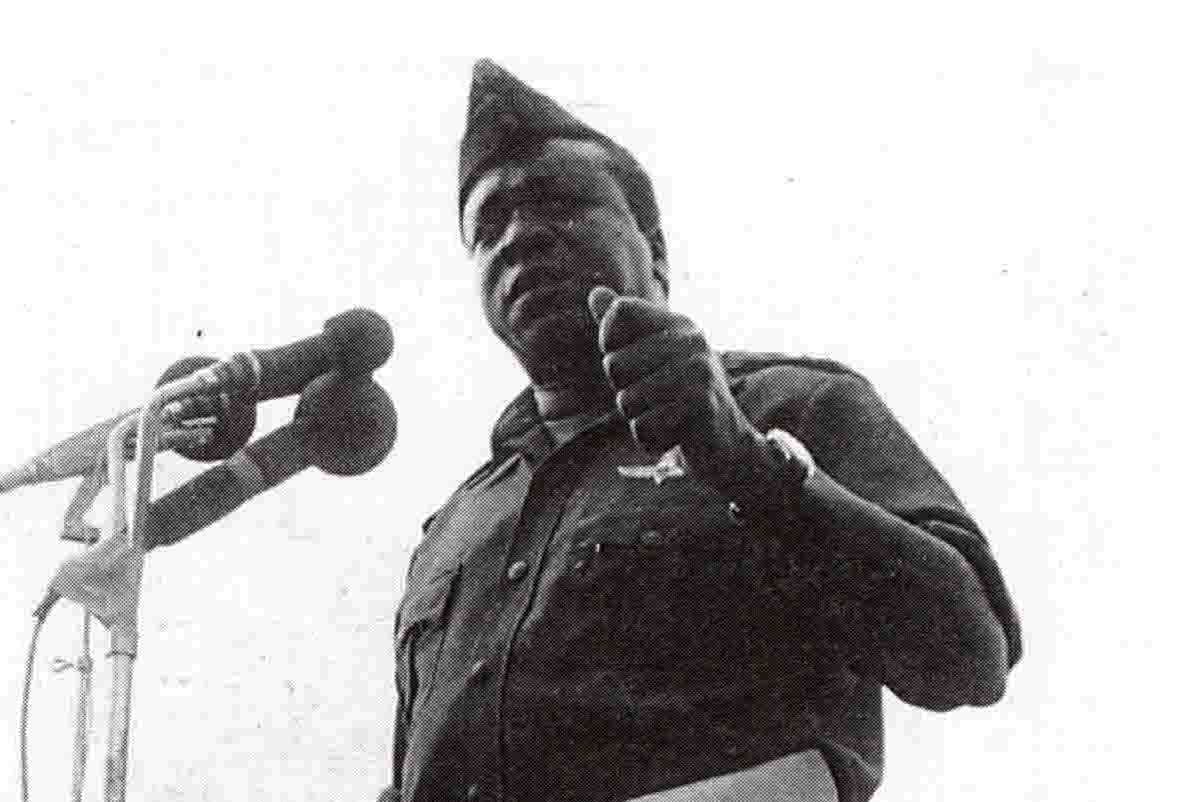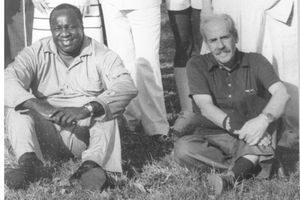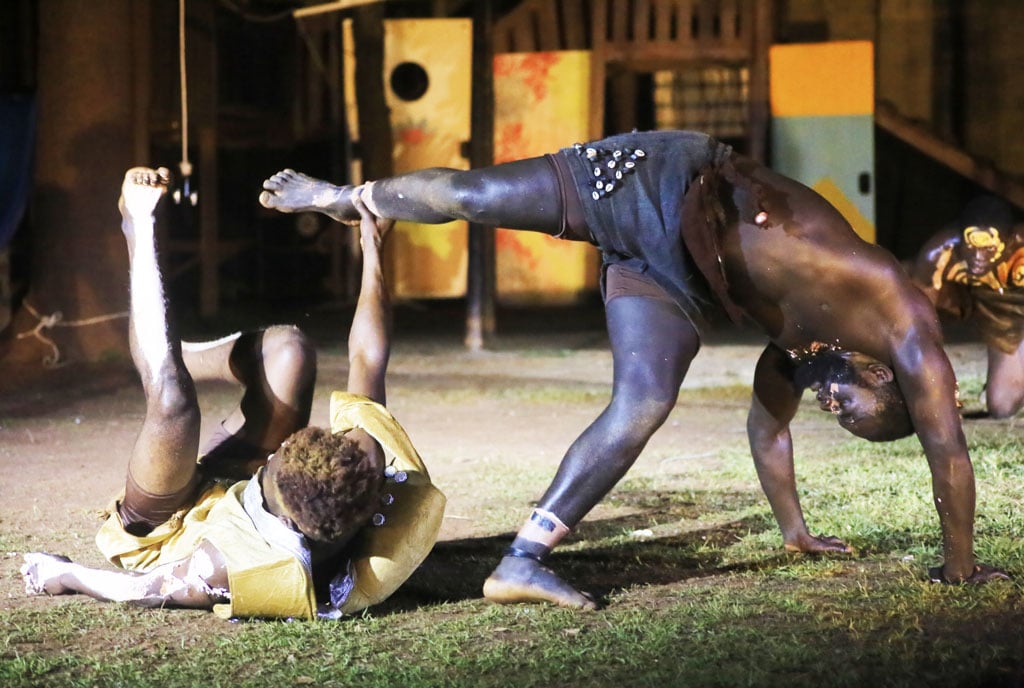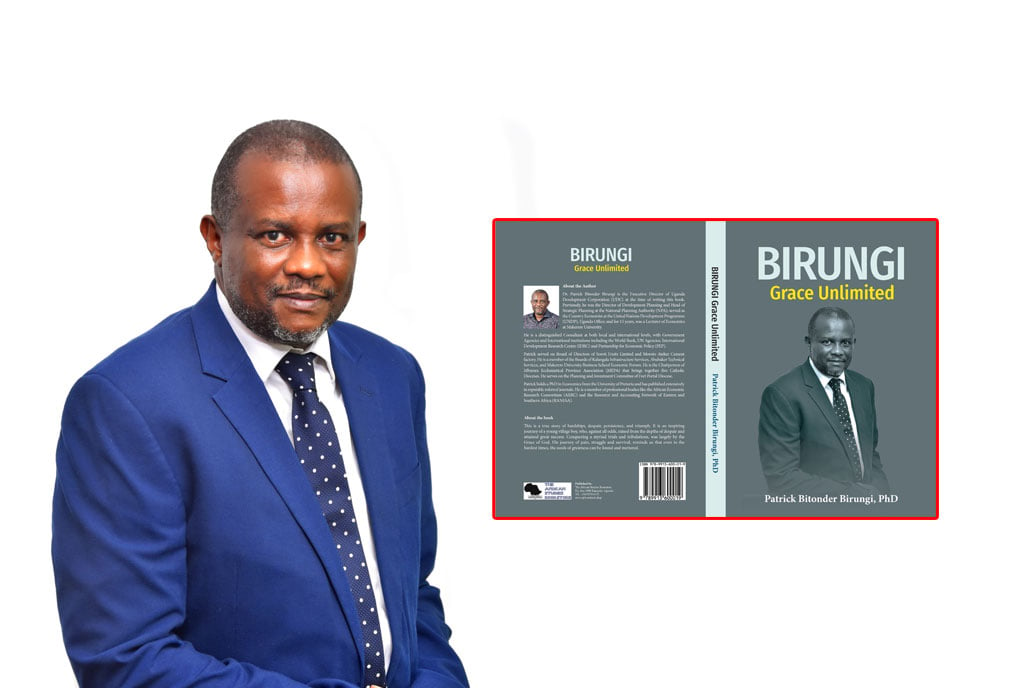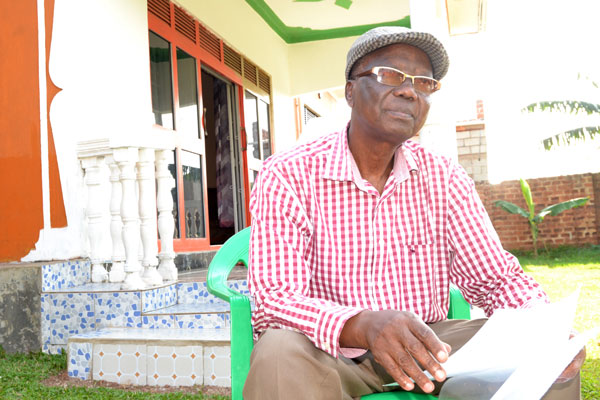
Lt Ahamed Mustafa Doka, a former aviation engineer of the Uganda Army in Idi Amin’s government. PHOTO/DAN WANDERA
Lt Ahamed Mustafa Doka, a former aviation engineer of the Uganda Army (UA) and Uganda Hotels Personnel manager at former president Idi Amin’s treasured Cape Town Villa Hotel, remained in touch with his former boss (Amin) even after the fall of the government until his final departure at Crested Crane Hotel in Jinja.
Doka, who had a short stint at the Uganda Air Force base before shifting duty on medical grounds, had his aviation studies in Israel and the former Soviet Union (USSR), present-day Russia.
Doka had earlier struggled to accomplish several rescue tasks assigned by Amin, including the rescue of trapped Libyan and Air Force officers at Entebbe using the presidential boat through Lake Victoria.
About Ahamed Doka
Born in 1950 to a retired agriculture officer in the Colonial government, the late Mustafa Doka Jaaba, Doka had his early primary education at Bombo Sudanese Primary School and Bombo Sudanese Secondary School between 1959 and 1966.
At the time of Amin’s takeover of government in 1971, Doka was a student at Kololo High School in Kampala. He was a beneficiary of the very first Amin’s Air Force recruitment in 1973 as a cadet trainee.
From the military training at the Gulu Airbase in January 1973, Doka, together with the other trainees, went for a six-month pilot training in Israel before embarking on a four-year-long training in Russia where he specialised in Aircraft Instrumental Engineering. The training ended in 1977 with a posting back home in Uganda at Gulu Airbase and later Entebbe.
Doka’s stay in the Air Force was cut short after developing a health complication. He would later ask for relocation out of the noisy and less stressful department. His bosses were puzzled but later considered him for redeployment at British American Tobacco (BAT) as chief security officer in Jinja.
While at Amin’s Cape Town Villa
While Amin had the State House Entebbe and Nakasero State Lodge, he chose not to stay at any of these places in the later years of his presidency preferring Cape Town Villa on the shores of Lake Victoria in Luzira, a Kampala suburb.
By virtue of his tribe (Nubian) and profession as a soldier attached to the Uganda Army of the time, Doka got a lot of connections and became loved by many officers of the Uganda Army, who possibly thought he had a better connection to the highest office.
His home became a common place visited by many officers of the Uganda Army while in Jinja. For his own safety, he sought a transfer from Jinja. Everybody knew him as a soldier of the Uganda Army but because of the many connections, he approached his boss, Lt Col Khemis Wenni, the overall BAT manager at the time.
“Alhough he understood my explanation, my next place for relocation was now a problem. Many soldiers kept visiting my place and people mistook me to be part of the State Research Bureau. I became very insecure. I was only armed with a (pistol) yet my security was not guaranteed in my location in Jinja Town,” he says.
When there was an attempt on Amin’s life on his way from Tororo, the security became enhanced.

Former president Idi Amin
“And because many State Research Bureau officials were my friends who used to visit my home, I got scared for my personal life. Many people began avoiding me. This partly explained why I sought to leave Jinja,” he adds.
Doka soon got in touch with a friend who was working at Cape Town Villa Hotel. He asked him whether he (Doka) could work at the hotel. At that time, he was not sure about the position that he was going to occupy.
“I was asked to present my CV which he later shared with Idi Amin. Luckily while they discussed I overheard Amin asking about my father. My friend explained that I was a son of Mustafa Doka. Amin was excited about Mustafa Doka, his old friend in Bombo. Amin quickly recommended that I should work at the hotel in the department of human resource as personnel,” he says.
When the government rationalised companies, the Uganda Hotels fell directly under the president’s office. Under his new appointment, Doka was now overall personnel for Uganda Hotels under the Human Resource Department but based at Cape Town Villa Hotel.
Cape Town Villa had become the new home for Amin, who held all his important meetings at the venue.
Because Amin loved the Nubian language, Doka soon became one of his most trusted Lieutenants and he was assigned several special duties at the hotel.
“These were not normal days. The war was raging and the enemy was closing in from different directions. Amin became cautious although he at times recklessly dismissed rumours about the seriousness of the war,” Doka reveals.
Securing trapped officers in Entebbe
“Because the Cape Town Villa Hotel had become the tactical command and operations centre for Amin, I was soon assigned the job of securing the Libyan and Uganda Air Force officers who had been cut off by the advancing Tanzanian and Uganda National Liberation Front soldiers,” he adds.
A delegation had been sent to Amin by then Libyan president Col Muammar Gaddafi. When Amin landed in a helicopter with the Lybian officers, they were directed to a secure room.
“I vacated my room since it was the best at the time for the delegation. I was charged with ensuring that they were secure at the hotel and I was the only person who shared the room key. This was shortly before April 1979,” he says.
The Lybian rescue team later arrived with 10 inflatable boats and their respective engines. These were special boats that were later handed to Doka by Amin to help in the rescue mission for the trapped Libyan and Ugandan Air Force officers at Entebbe. Doka was also in charge of the presidential inflatable boat that Amin always used on Lake Victoria.
“I remember conducting some successful missions where more than 39 officers were rescued including Lt Col Yasin, the Air Force Commander. At one time, our boat was blown up by the UNLA Forces. We survived after jumping into another inflatable boat,” he says.
Amin had also advised Doka to use the presidential boat to get to Jinja where he had relocated when the fight for Kampala intensified.
Maj Abas’s suitcase with US Dollars
“When Amin was leaving for Jinja, he cautioned me not to overstay. He advised me to either travel by road to Jinja in case it was the safest means or use the presidential boat. Surprisingly, when I opened the head of Lybian delegation, Maj Abas’ suitcase, it contained $50,000, I was puzzled,” he recalls.
When Doka tried to move outside Cape Town Villa Hotel, he met a friend he only remembers as Mukasa. Mukasa quickly asked him what he was doing at the hotel when Kampala had already fallen into the hands of UNLA.
“I was in my own world. I quickly drove back to the hotel to get some belongings and escaped from Kampala as earlier instructed by my boss (Amin). I could not smuggle out Maj Abas’ suitcase because it was impossible. I also realised that this money was going to be taken away by the rebels,” he says, adding: “I decided to use a rope tied on a grenade with the pin already pulled and attached to the suitcase containing the money. This was to blow up anybody who could come rushing to take the briefcase left behind at the hotel room.”
He says he knew that if Maj Abas by any luck returned to the room, he was trained enough to detonate the bomb and would possibly detect the rope before forcing his way to get the bag and would not be blown up.
Doka had, however, decided to pick at least $5,000 for personal use as he fled to Jinja to meet Amin who had relocated to Crested Crane Hotel Jinja. Doka says what happened to the briefcase and the remaining $45,000 has never come to his ears. Because Kampala City was abandoned and many people were escaping for safety.
Through his friend Mukasa, he used the hotel car that was covered with tree branches like many other vehicles that the jubilating crowds were driving as they welcomed the UNLA force in Kampala.
They made their way through the Industrial Area, Nakawa and Lugazi.
At this time, the eastern part of Uganda was safer and friendlier to the Uganda Army forces. The Uganda Army had mounted a serious roadblock at Mabira Forest.
Here, Doka says he fell into trouble for mistaken identity. He had left the tree branches and leaves on his vehicle as he approached the Uganda Army roadblock in Mabira.
The soldiers did not wait for any explanation from Doka who was dressed in civilian clothes. He was beaten badly.
He says all the explanations fell on deaf ears until one of the commanders asked the soldiers to him.

President Museveni
The saviour here was the accent in the Kiswahili language that the commander linked to his own Nubian, Lugbara and West Nile tribes.
Doka, after a lengthy explanation, was understood and later identified as their own. He was given a soldier to help him drive to Jinja where he successfully joined Amin, who was happy to see him alive.
“Amin asked me where I was heading after the fall of Kampala. He stayed in Jinja for three days before heading to Gulu with Maj Abas,” he says.
Life in exile
From Jinja, through Tororo, Doka found himself at the refugee settlement camp in Kakamega in neighbouring Kenya where many of the fleeing Ugandans settled. But within three days, Doka sensed trouble when the management at the Kakamega Refugee Settlement Camp started identifying former Uganda Army soldiers and senior government workers for possible deportation.
“I had to plan my escape from Kakamega. Fortunately, before the planned escape, my brother of Kenyan citizenship had shortly visited the camp to check on me. I escaped with my wife to Nairobi. I later relocated to Germany because even Nairobi became unsafe,” he says.
In 1988, when Doka decided to return to Uganda, the situation had normalised, although he had been in and out of the country. He spent time working with Crown Beverages Ltd (Pepsi) after his return from exile.
Politics
Unlike several of his colleagues who survived and returned from exile, Doka retired and joined elective politics. He explains that his decision was premised on what he possibly termed as “testing the political waters”. In 1996, he contested for the Katikamu South parliamentary seat in Luweero District.
“I was amazed at the overwhelming support from the people of Katikamu South. I did not go to Parliament because I was ranked second but at least the voters showed me the support,” he says.
Doka was among the longest-serving Resident District Commissioners (RDCs) until his recent retirement, having served for 18 years. He still serves as the ruling National Resistance Movement (NRM) party as a national mobiliser for the Nubian Community.
Serving Amin
Doka had the opportunity of working closely with Amin at a personal level and possibly believes that history has partly misjudged Amin in some way.
He says while Amin was less educated, he was very understanding and quickly forgave people who made mistakes against him and preferred quick answers.
“Amin was short-tempered but very loving. He was poor at defending his name even when it necessitated that he come out to clear it. Amin was good at listening and accepted all sorts of rumours without giving time to any serious investigation. He had no special propaganda machinery to help his regime. At times when you told him facts, he brushed them off. He believed much in his soldiers yet many had been infiltrated. Many were quickly deserting and were in business,” Doka says.
In 2018, President Museveni appointed Doka, the Deputy Ambassador to Saudi Arabia, a position he did not take up due to ill health. He had hoped to travel to the UK for a medical review and treatment before further assignments.

